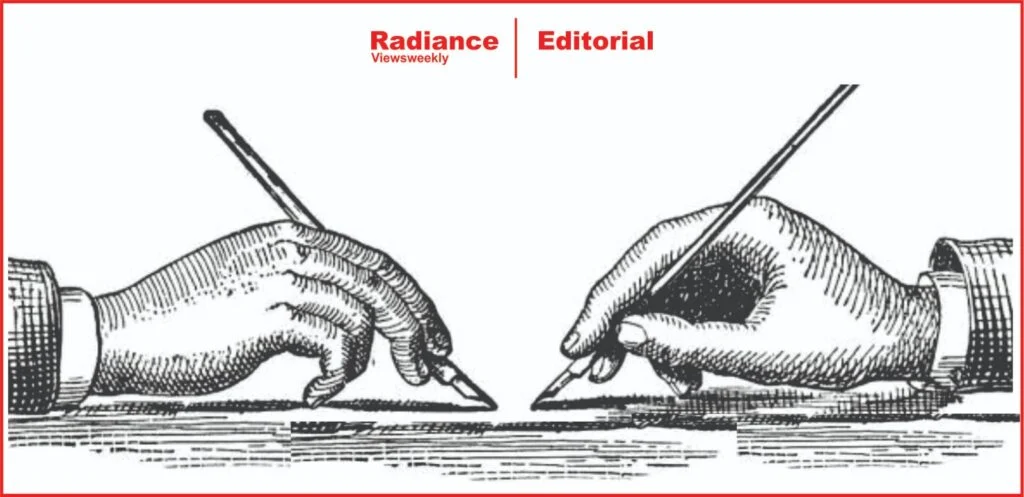Chhaava is the latest film which is being peddled as history. It is rather a hysterical presentation which belongs to the category of communalist films aimed at exploiting the basest sentiments in human nature. Chhaava is based on a Marathi novel penned by Shivaji Samant. The novel itself was severely criticised when it hit the stands. Chhaava clearly falls in the category of propaganda films with questionable motives.
The director of Chhaava claims to be presenting a popular version of Shivaji’s son Sambhaji life, who succeeded Shivaji. He was defeated and put to death by Aurangzeb. This film is a clear manifestation of the mentality representing the fascist politics which has failed to give good and healthy governance to Indian citizens.The leitmotif of communal politics is squarely based on the British recipe of divide and rule politics. Chhaava is neither history nor good story. It is conceded that a filmmaker has the privilege of changing historical facts to make the film attractive to film watchers. But distorting historical events and facts does not come under poetic liberty.
The single aim of this film is instigating citizens to hysterical reaction with a view to prepare people to violence. It is unfortunate that the common citizens through such films are being made the victims of hate, fear and ill will towards the Muslim citizens who are part and parcel of the Indian society and who have been living cheek and jowl in every nook and corner of this great nation.India is one of the best examples of unity in diversity anda plural society which believes in live and let live, and not only tolerance but reconciliation.
Recent feature films in this category were Kashmir Files, Kerala Story, and Sabarmati Express.Chhaava depicts the Mughal Emperor Aurangzeb as a cruel anti-Hindu ruler. Historians agree that the 17th century was a difficult period in Indian history. The emperor had to keep his empire united.Wars and strict action against revolts were a necessary part of governance. Historian agree that in Aurangzeb’s reign the percentage of his Hindu nobles was about 33%, whereas earlier it was around 25%. In Aurangzeb’s time India accounted for 27% GDP of the world.
Modern India does not require opening of old wounds. Nor can we afford communal divide. Therefore, it is a national necessity and patrioticdutyfor us toavoid misuse of history and twisting of facts.
The ruling party BJP, having failed in all aspects of good governance and development is taking refuge under false narratives and communal interpretations of history. It appears that this negative trend of films like Chhaava will continue. Communal politics appears to be the last resort of fascist forces. We see that sane elements of Indian society are up in arms against such films which promote hate, suspicion and fear. India’s success lies in love, understanding and reconciliation.


